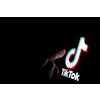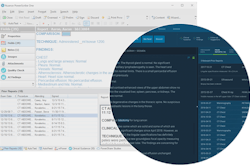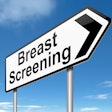Dear AuntMinnie Member,
Artificial intelligence (AI) is top of mind this past week in radiology -- but then it seems like it's been top of mind most every week recently.
Our most-read story for the week was an article on how South Korean researchers used a deep-learning algorithm to analyze chest x-rays for signs of lung cancer. They found that the average radiologist saw a 5.2 percentage point improvement in sensitivity after reviewing images again with help from the software. What's more, their number of false positives also declined.
In other AI news, large public databases of images are a key component in the training and development of AI algorithms. But the findings from a new study suggest that some of these databases could be less accurate than others -- an issue that could affect the accuracy of algorithms that are trained on them.
You'll find these stories and more in our Artificial Intelligence Community.
Livesaving lung screening
CT lung cancer screening has the potential to save thousands of lives every year, according to a November 13 report from the American Lung Association. But participation rates stand at just 4.2% nationally, according to the group.
Despite low participation rates, the association still sees evidence of CT screening's positive impact on lung cancer. Five-year survival from lung cancer has risen from 17.2% to 21.7% over the past decade. Visit our CT Community for more.
While you're there, check out a new case report out of the U.K. regarding a 16-year-old boy who suffered lung damage from vaping. Clinicians originally thought it was a case of worsening pneumonia until e-cigarettes came under suspicion. They offer tips on what to look for if you see a similar case in your facility.
Big changes to RSNA week
Finally, the RSNA on Friday announced some of the biggest changes to the format of the annual meeting in decades. The Friday scientific sessions will be eliminated starting in 2021, and the technical exhibit will be pared back from five days to four -- much to the relief of many of the vendors exhibiting there.
Read all about the new changes in our RADCast @ RSNA special section, at rsna.auntminnie.com. You'll also find our modality-by-modality previews of the top research to be presented next month in Chicago.



















